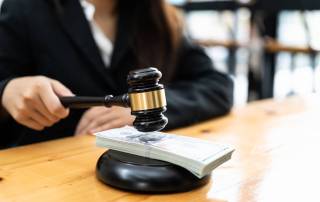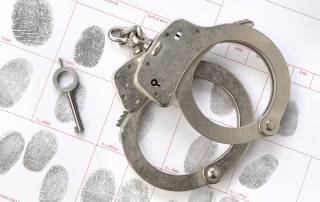What Does the Law Say About Stalking in New York?
Stalking charges in New York can be confusing for the accused, especially because the actions that resulted from the charge could have frightened the victim. Besides, what may have frightened the victim can vary, making a stalking case more confusing for the accused.
All the same, stalking is a severe crime in New York, and it would help to hire a skilled Long Island criminal defense attorney to help you fight the charges. A lawyer with in-depth knowledge of the legal justice system can help you navigate the complex issues around the process.
Classifications of Stalking in New York
Stalking is one of the crimes where repeat offenders face more significant and harsher penalties. The law classifies stalking into the following four categories. Regardless of your offense category, hiring a skilled Long Island domestic violence lawyer is crucial to help you beat the charges.
Stalking in the First Degree
Stalking in the first degree occurs if you cause physical injury to the victim while stalking them.
You’ll also face a first-degree charge if you commit:
- Sexual misconduct
- Forcible touching
- Sexual abuse in the second degree
- A criminal sexual act in the second or third degree
- Rape in the second or third degree
- Female genital mutilation
The Penal Code § 120.60 classifies stalking in the first degree as a Class D felony, and the penalties are:
- Incarceration of up to 7 years
- Fines of up $5,000
Stalking in the Second Degree
Stalking in the second degree involves engaging in conduct that creates fear in the victim. The behavior makes the victim believe you will physically harm them, commit a sex crime, or kidnap them. Using a weapon in the second-degree stalking offense aggravates the charges.
You will also be charged with stalking in the second degree if you commit the offense within five years of being convicted of a predicate sex offense. Alternatively, you will face second-degree stalking charges if you commit the crime against at least ten people under different circumstances. The crime is a Class E Felony, and the penalties are:
- 4 years incarceration
- Fines of up to $5,000
Stalking in the Third Degree
Stalking in the third degree is a crime perpetrated against three or more victims under different circumstances. It entails impacting reasonable fear in the victim or causing severe bodily injury.
You’ll also face third-degree stalking charges if you commit the offense within ten years of a previous conviction of the following predicate crimes:
- Rape in the second or third degree
- Sexual misconduct
- A criminal sexual act in the second degree
- First-degree aggravated sexual abuse
- Second and third-degree sexual abuse
- First and third-degree incest
You also must have intended to harass, annoy, or alarm the victim or engaged in conduct that likely caused fear to the victim. The crime is a Class A misdemeanor in New York, and the penalties are:
- Up to one year in jail
- Fines of up to $1,000
Stalking in the Fourth Degree
A fourth-degree staling charge entails intentionally engaging in conduct directed towards the victim and which:
- Is likely to cause reasonable fear of bodily harm to the victim, their family, or property
- Causes harm to the victim’s mental or emotional health by following, initiating contact, or telephoning the victim of their acquaintance despite being asked to stop
- It is likely to cause fear that the victim might lose their job, business, or career because of your stalking behavior
Fourth-degree stalking is a Class B Misdemeanor, and the penalties can be hefty and are as follows:
- 3 months of jail time
- Up to $500
An aggressive criminal defense lawyer in Long Island can fight to protect your rights by having the charges reduced. Depending on the evidence brought against you, a skilled domestic violence attorney in Long Island can challenge the evidence in your defense.
What is the Difference Between Stalking and Harassment
Stalking and harassment make it an offense for anyone to interact with another person in ways that threaten their peace or annoy them. Both crimes entail the same conduct, but the offender’s intention is the primary difference.
If you follow someone or persistently call them to annoy, frighten, or harass them, you can be charged with harassment. However, if you follow someone or repeatedly try to communicate with them for another reason, for example, trying to get your ex back, the offense can be classified as stalking.
Penalties for Stalking vs. Harassment
Stalking attracts harsher penalties than harassment, and the seriousness of the offense changes based on the following:
- The stalker’s detailed behavior
- The number of victims affected by the conduct
- Whether the stalker used a weapon
It’s in your best interest to talk to a skilled domestic violence lawyer in New York to evaluate your conduct and the charges against you. That will ensure you don’t face charges for a crime you didn’t commit and suffer harsh penalties that could ruin your life and future.
A Legal Professional Helping You Fight Against Stalking Charges
Stalking in New York takes many forms, and the repercussions are severe. The laws in New York can be complex and intimidating, and the penalties can inhibit your rights and freedom while marring your future. Your best bet at fighting the charges and having them dropped or reduced is to hire a skilled and aggressive domestic violence attorney in Long Island.
Our law firm has top-rated and knowledgeable criminal defense lawyers who understand how the criminal system works. They can help you create a solid defense strategy to navigate and fight the charges. We have many years of experience defending clients against domestic violence charges and can help you. Book a case evaluation with us today.







































